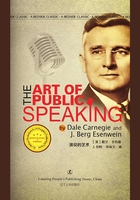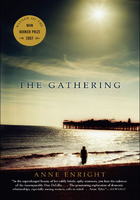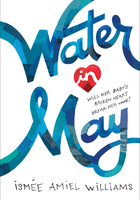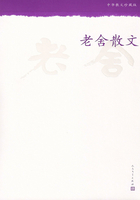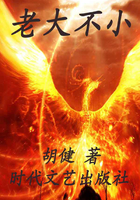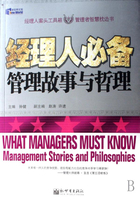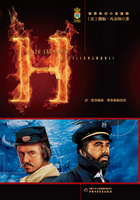TEN MINUTES LATER, I STARE AT THE NOTE for Iris we've left on our front door and wait for Mom to walk out.
It's quiet. I'm used to the neighbor kids screaming and the elevator humming and footsteps echoing in the stairwell. We might be the only people in the building. Any other time I'd love that kind of quiet, but now it pricks at me, it itches and nags, reminding me that we're late and we're not where we should be.
Mom locks the door behind us. Her hand lingers on the key. I'm used to Mom being late and distractible, but not this bad. We're finally out the door, and she still slows us down?
What I hate most is that I don't know how to act. I did what I thought I should—prepared, reasoned, panicked—but Mom's the one not following the script. Every minute she stays so infuriatingly calm, it feels more and more as though I'm missing something obvious, like I skipped instructions everyone else must've gotten.
Mom's just being Mom, I can practically hear Iris tell me. It's not you. It's her.
That still doesn't tell me what to do.
"We're late," I say, which feels like not nearly enough.
"I'm just …" Mom slips the key into her pocket. "We'll be back soon enough."
Not until we descend the stairs do I realize she was saying goodbye.
The world outside feels the same as my living room: wrong. Anyone who hasn't already fled into a permanent shelter or generation ship will either be in a temporary shelter or they'll have ignored the evacuation order and be holed up deep inside their home. Either way, they're not out here.
Cars have been disappearing from the roads for months. Garages are emptier. Parking spots are easier to find. People no longer bothered going to work, so traffic jams died down, then flared up as people fled. So close to impact, it's just this left: an empty street, a single car parked across the road, and Mom unscrewing the gas cap and pouring from one of the gasoline jugs she lugged with her from upstairs.
It's not safe to leave more than we'll use sitting in the tank. At this point, a full tank is worth more than the car itself.
I look left, right, left out of habit before I run across the street. The world looks gray. The cloud cover blocks out every ray of thin winter sun. I can look up without fear of hurting my eyes. In the past weeks, we could sometimes see the ships rising to the skies—silhouettes in the distance or blinking dots high above. The sky has been empty for days, though. The ships are all gone, and the permanent shelters are all full.
Mom's already unlocked the car, so I toss our backpacks inside. They're filled to bursting with food, clothes, filters, medicine, battery packs. It's not enough, a voice in my head says. We're going to die.
I agree with the voice. I still shut it out.
"We'll be fine," Mom repeats out of the blue. She puts a full jug in the trunk and the empty one by its side, though we won't get a chance to refill it. It's funny how quickly habits grow—we only bought the car two months ago, after ours got stolen, and this old hybrid was all we could afford. Still, two months is long enough that, as I sit, my hands know where to find the seat belt and how to click it shut without looking. I'm almost comfortable.
I brush the tab that fits securely around my wrist. The time lights up in the air right above the device. We have twenty-eight minutes. I should preserve the battery and not check my tab so often. The government recommended shutting down our tabs entirely, turning them on only to access downloaded databases for information or to test the air or water, but I can't bring myself to do it. Iris may still call.
The legacy phone companies closed down months ago. No one has accessed the Internet for over a day. Still, that may change. She may call.
I discussed it with Dad yesterday morning, a last, long talk via our tabs before he went underground in a shelter half a world away. If Iris is alive, she'll be in a shelter, whether one in Belgium or the one Mom and I are headed toward. She'll have found herself a safe place. She makes friends easily. That's why she went to Luik in the first place. One last festival before the world meets its end.
Mom drops into the driver's seat. As the engine revs up, a car passes in the distance, going at twice the speed limit. It's the first car I've seen in hours. We should follow suit—push our car to its limit—it's the end of the world, why aren't we moving—
Mom squeezes my hand. It makes my back stiffen, but I don't want to waste time by pulling away and making one of us apologize.
The car slides onto the road. Mom's driving is improving. When she first deactivated the autodrive to save power, our rides were choppy, but now the engine settles into a hum that reminds me of the purring cats at the Way Station.
Nothing left to do but wait. I run my fingernails across the hard threads of my seat belt, so finely woven that they never get stuck in my chewed-off nails like the threads of the couch. The world is quiet enough that I even hear the sound my nails make: a soft tzz-tzz, back and forth, like scratching my jeans or the straps of my school backpack. I match the sound to my breathing. We drive like that for several minutes, hearing nothing but the engine and my fingernails.
I never thought January 29 would be so banal.
Then we turn a corner, and a woman screams.
My head snaps right. There—maybe ten meters down the road. She's all round, dark winter coat, with a shock of white hair sticking up like the frayed wick of a candle. She stands over a motorcycle, gripping the handlebars, yanking it back and forth. She lets out another shout.
Mom slows the car. My fingers on the seat belt pause in their scratching. There shouldn't be anyone outside so late. The shouting woman turns toward someone sitting huddled against the building. Suddenly, I recognize the face tucked away in all that hair and coat.
"Mom, that's Ms. Maasland. My geography teacher." I place a finger against the cold window.
"Do you want me to … ?" Mom stops the car before I can answer.
We're already late. If anything, we haven't been driving fast enough, and that makes me realize that if Mom had let me answer, I'd have answered no. I'm almost glad she decided for me.
I swallow the unspoken word, down and gone.
Ms. Maasland sees us now. She pulls her hood up over her wick-white hair and jogs toward us.
I swipe at the car window to buzz it down. The cold wind blowing in makes me squint. Ms. Maasland leans in, red-faced. "Thank you," she pants, "thank you for stopping. Wait—Denise? Denise Lichtveld?"
We're late!
"Hello, Ms. Maasland," I say. I haven't seen her in months. I heard online that Ms. Maasland never returned to school after the comet announcement—the same way I didn't. What am I expected to say? Particularly now, here? Teachers don't belong at the end of the world. Teachers belong in school, and school is over with.
"What's going on? Can we help?" Mom asks.
Ms. Maasland nods rapidly. "We have to get to our shelter. The motorcycle is programmed to my wife's signature, not mine, but she broke her leg coming down the stairs. She can't ride."
I glance at that second shape against the wall. The figure is slim, hunched over.
No one else is around to help. It's just the four of us—the ones lucky enough to get shelter for the next few days, and foolish enough to be late for even that.
"I don't know how to reset the signature," Ms. Maasland goes on. "Have you worked with these kinds of bikes? Normally we'd look it up online, but …" Her voice thickens. "We weren't supposed to leave our shelter, but Leyla wanted to make sure our neighbor made it to a bus pickup point. He's confused a lot. On the way in we found this Russian kid wandering the street, a refugee, and … We would've still made it back on time, but Leyla was rushing and slipped and—I know you have to hurry. I just don't know how to get back."
"No, no, it's fine," Mom says.
"We're late," I say.
"We can take a look. One minute."
"We're late," I say again, pleading.
"Denise, honey …" Mom sends Ms. Maasland an apologetic look I've seen before. "Ms. Maasland? Where's your shelter? Giving you a ride might be faster than getting the bike to work."
"Schiphol." The airport is southwest of here, right below Amsterdam. Our own shelter is southeast and much farther away. "You wouldn't need to take us all the way in. You could drop us off nearby. From there I could go for help myself …"
We shouldn't do either. We've spent months knowing we'd have to harden ourselves, do what's necessary to survive, and here Mom is, wondering if she can offer a ride or try to start their bike. When she's clean, she wants to feel valued, like she used to. That's another thing Iris taught me. Mom will try, and keep trying.
Twenty-four minutes.
"There's a shelter in Schiphol?" Mom says. "I had no idea."
I look past Ms. Maasland a second time. Her wife—Leyla—is sitting up straighter, gripping her leg with both hands.
I know we're not supposed to leave them. I know I'm not supposed to say no when people need help. I don't know what we are supposed to do, though.
"I had no idea," I say. Mom's words are sticking in my mind and forcing their way out. "I had no idea." I say it at a mutter, as if that way Mom and Ms. Maasland won't hear me and won't think I'm broken. I don't want to be broken Denise. I want to be urgent Denise, Denise with a mission, Denise who will get us to the shelter before impact because Mom can't be trusted to. The words slip out a third time: "I had no idea."
Mom gives me a smile. "Denise. Honey. We can't leave your teacher like this. Maybe we can take her with us to our shelter?"
"But they're not on the list." Our shelter may not even accept us now that we're so late, let alone others.
"They won't turn away people with nowhere else to go."
"Of course they will!" They have that list for a reason.
The only way to help is to give them a ride to their own shelter—Schiphol is much closer—but where would that leave Mom and me?
A thought nags at me. "Ms. Maasland, is your shelter at Schiphol an official one? Or might they take us in?"
The temporary shelters the government organized have rules. But I've read about other shelters organized by rich citizens and companies pooling their resources. Some claim they want to help those who slip between the cracks; mostly, I think they want to help those with skills that will be needed later on, because they're deluded enough to think there will be a later on.
Ms. Maasland hesitates. The wind whips brittle white strands across her face. "We're not supposed to bring anyone. But I—Shit!"
I jerk back. I've never seen Ms. Maasland get mad, let alone curse.
"Sorry. It's just … All right. I'll try to get you in. I'll vouch for you."
I squint like her face will explain why she's reacting this way—could she get in trouble for bringing us?—and the word try makes me wary. She never actually answered the question. I repeat, "Is it an official shelter?"
"No, it's not." Ms. Maasland's eyes search out mine. I focus on the lock of hair curled up against her cheek. "If you get us there, you'll be saving our lives. I'll make them take you in. I promise."
I hate the thought of abandoning the shelter—our shelter, with a list that has our names, and where Iris might be waiting—but Schiphol is closer by far and the clock tells us we have twenty minutes.
We'll find Iris afterward. We need to survive first.
It feels wrong. But I still say, "Mom?"
"Let's get your wife into the car," she tells Ms. Maasland.
Mom takes us to the airport grounds. I'm scratching the seat belt and looking out the window, craning my neck as though I'd be able to see the comet coming—not that I'd have time to do anything if I did.
The thought doesn't set me at ease.
"Left," Ms. Maasland instructs from the backseat. "Again. There—go through the gate."
The gate is cut open. A thick chain lies on the ground.
"I've always wanted to go into the employees-only areas," Mom muses, and swerves her car past a parking lot. I tell myself not to look at the clock, because it won't matter at this point. Then I do it anyway.
"Mom." It's the first thing I've said since we left for the airport. My voice is almost a whimper. We have three minutes left. Three minutes before these streets we're driving on are destroyed. Three minutes before the world goes dark for a year or longer.
"We're almost there, Denise," Ms. Maasland says. "I should warn you … our shelter … it's not a regular shelter."
"Any sturdy building is safer than our home," I say, recalling the warnings we've been given. Our apartment building wasn't built to withstand natural disasters. Few were. The Netherlands has no hurricanes, no volcanoes, not even any earthquakes since we stopped extracting natural gas, and any floods are caused by heavy rain or a damaged river dike, easily contained.
We don't know where the comet will hit. All that our technology and brightest minds could do was narrow it down. We know this: it'll hit the Northern Hemisphere. Western Russia, Eastern Europe. Maybe as far south as the Mediterranean region, maybe as far north as Scandinavia.
It's fast.
It's big.
And if it hits too close, none of our homes will survive.
"Any sturdy building," I repeat. And there are buildings all around us—offices and hangars and the airport building itself, raised glass hallways leading to the gates. I try to see which is Ms. Maasland's shelter. It must be low to the ground, with no windows and few doors, perhaps underground entirely.
"About that," Ms. Maasland says. "It's not exactly a building, either. It is sturdy, though. Turn the corner here."
Mom turns into an empty lot. The shelter must be an underground hangar, like in the movies. We're at an airport: a hangar would only make sense.
"The cloaking should fade any minute … There," Ms. Maasland says.
The air above the empty lot shimmers. Then—then it's no longer empty. The cloaking falls away like scattering clouds, revealing a shape so big, I have to turn my head to even be able to see it whole.
My first dumb thought is It's blocking my view of our shelter.
"Surprise," Leyla whispers.
My fingernails freeze on the seat belt's tightly woven strands. I take in the sight. For the first time all day, I don't think of the comet, or Iris, or how much time we have left.
Our shelter is a generation ship.

